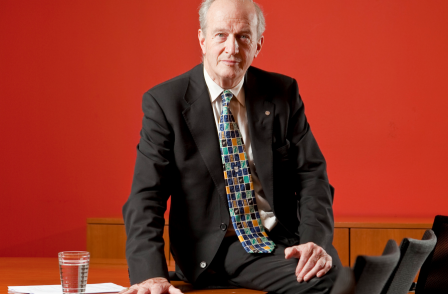
Press Complaints Commission chairman Lord Hunt today sought to break the political deadlock over the future of press regulation by pressing ahead with the formation of a “Leveson-compliant” press regulator.
He “fired the starting gun” on what he characterised as a new period of action rather than words, ahead of what will be a crucial week in the political process with the Defamation Bill hanging in the balance.
And he announced that former Supreme Court chairman Lord Phillips of Worth has now named three other independent individuals, plus two eminent journalists, to set up the appointments panel for the new industry-run press regulator.
He said it was for Lord Phillips to reveal who those individuals are (Lord Phillips is currently understood to be out of the country).
With Parliament ‘rising’ on 28 March there are now just three weeks for the Defamation Bill to clear the final legislative hurdle in Parliament and go forward for Royal assent.
But the Conservatives will only give it Parliamentary time once the press-regulation deadlock has been cleared.
Three weeks ago the Conservatives put forward a Royal Charter to underpin press regulation after negotiation with the press industry.
But after extensive cross-party talks, they have yet to find the common ground needed for it go forward.
And without a cross-party deal on the Royal Charter, the Conservatives are unlikely to risk the Defamation Bill being passed in its current form because of a Leveson law amendment tagged on to it in the House of Lords by Lord Puttnam.
Lord Hunt said today at a media briefing: ”The talking has got to stop and it’s time for action, and in a way today I’m firing a starting gun. We have a crucial few days ahead of us when someone, somewhere within the Coalition Government will decide whether or not the Defamation Bill will proceed, and what will happen with the Puttnam amendment.”
Lord Hunt revealed that there is a move to amend the Enterprise and Regulatory Reform Bill in its final day on report at the House of Lords on Monday.
This could be a second attempt by the Lords to enshrine the new Leveson system of press regulation in law.
Hunt said: “I just want to inject a note of sanity into the debate…”
He added: “We are today announcing that the first step is going to be taken…It’s not a case of complying with every word of the Leveson report…
“If complying with Leveson is ever reduced to box-ticking the new structure will simply descend into a morass of bureaucratic nonsense. It will end up requiring more compliance officers than complaints officers.”
Previewing a speech he is due to give tomorrow, Lord Hunt said: “As Plato once wisely said ‘good people do not need new laws to act responsibly, while bad people will find a way around the laws'”.
Talking about the ongoing discussions between the press industry and politicians, Lord Hunt said: “It’s critically important that these discussions should not, and indeed must not, be about about politics but about principles and about practicalities.
“What I mean by that is what’s happened to the Defamation Bill. All three parties in their manifesto committed themselves to defamation reform…
"That hangs in balance because, in defiance of the clearly expressed views of Sir Brian Leveson himself, a huge Leveson amendment is threatening to drag it down into the deep.”
Lord Hunt said it was more important to get the new regulator up and running and then let whatever recognition body the politicians create to decide whether or not the regulator was complying with Leveson.
Lord Hunt said he could not reveal further details about the new regulator, other than to say that it was in no way an attempt to “wriggle out” of Leveson.
He said it would closely follow the Leveson principles and be the toughest system of press regulation in Europe.
He said that the appointments panel for the regulator (which Lord Phillips's group will apppoint), and the eventual governing board of the new press regulator would exactly comply with the first five recommendations of the Leveson report.
These state that the board of the new press regulator will comprise a majority of people who are independent of the press, include people with experience of the industry (such as former editors and senior or academic journalists), and not include any serving editors, MPs or members of the Government.
Email pged@pressgazette.co.uk to point out mistakes, provide story tips or send in a letter for publication on our "Letters Page" blog
